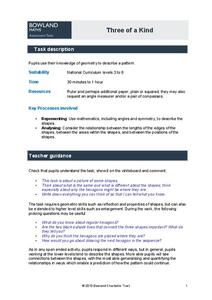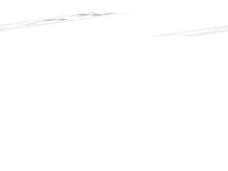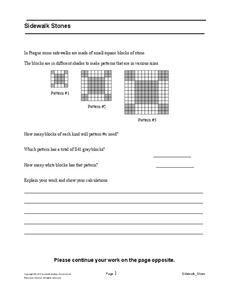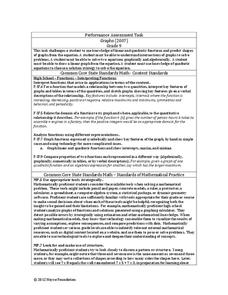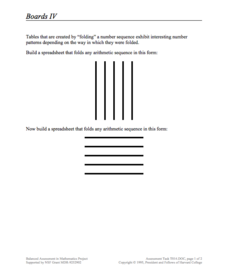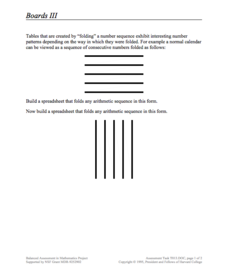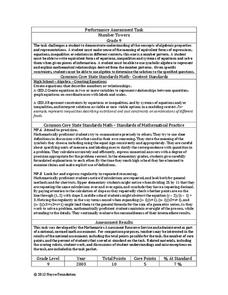Bowland
Three of a Kind
One is chance, two is a coincidence, three's a pattern. Scholars must determine similarities and differences of a regular hexagon undergoing dilation. They look at lengths, angles, areas, and symmetry.
Willow Tree
Perimeter of Common Geometric Figures
Help learners understand that perimeter and circumference are one in the same. Learners apply their skills to determine the perimeter/circumference of triangles, rectangles, and circles. They then use the same strategy to find the...
Curated OER
Patterns
In this Algebra I worksheet, 9th graders explore number and geometric patterns and use the Sieve of Eratosthenes to find the prime numbers less than one hundred. The six page worksheet contains eight multipart questions. Answers are...
EngageNY
Modeling from a Sequence
Building upon previous knowledge of sequences, collaborative pairs analyze sequences to determine the type and to make predictions of future terms. The exercises build through arithmetic and geometric sequences before introducing...
Curated OER
Problem-Solving Strategy: Find a Pattern
In this tessellations worksheet, students solve 2 word problems where they use the "make a pattern strategy" to form tessellations from geometric shapes. There is scaffolding for the problem solving strategy.
Noyce Foundation
Tri-Triangles
Develop an understanding of algebraic sequences through an exploration of patterns. Five leveled problems target grade levels from elementary through high school. Each problem asks young mathematicians to recognize a geometric pattern....
Curated OER
Geometric Patterns
In this geometric patterns worksheet, students learn to solve problems that use geometric patterns and solid figures. Students solve six word problems.
Noyce Foundation
Double Down
Double the dog ears, double the fun. Five problems provide increasing challenges with non-linear growth. Topics include dog ears, family trees and population data, and geometric patterns.
Mathematics Assessment Project
Sidewalk Stones
One block, two blocks, white blocks, gray blocks. In the high school assessment task, learners investigate patterns of sidewalk stones to develop a quadratic expression for each colored block. Young mathematicians then use the expression...
Mathematics Assessment Project
Table Tiling
How many total tiles does it take to tile a table top? Learners apply geometric concepts to determine the number of tiles needed for a specific square table top, and then use the result to create expressions for the number of tiles...
Inside Mathematics
Graphs (2007)
Challenge the class to utilize their knowledge of linear and quadratic functions to determine the intersection of the parent quadratic graph and linear proportional graphs. Using the pattern for the solutions, individuals develop a...
Concord Consortium
Boards IV
Build a connection between algebraic sequences and spreadsheets. Learners examine a specific folding pattern and convert the pattern into a spreadsheet. The goal of the spreadsheet is to produce a sequence of a specific pattern modeled...
Concord Consortium
Boards III
Learn to visualize mathematical patterns as a folded pattern. Beginning with a visual display, the task encourages pupils to view sequences as a folded table. The pattern of the table then becomes a formula in a spreadsheet that...
Los Angeles County Office of Education
Assessment for the California Mathematics Standards Grade 3
Assess scholars' knowledge with a 22-page assessment that covers place value, patterns, probability, estimation, measurement, geometric figures; and their ability to add, subtract, multiply and divide proficiently.
Noyce Foundation
Miles of Tiles
Create number sentences and equations to solve geometric problems. Each activity in the series of five asks young mathematicians to consider different-sized tiles to build structures according to specific criteria. The first activities,...
Curated OER
Complete the Patterns
In this patterning worksheet, 1st graders complete 4 patterns that are formed of black line pictures of plane figures. They trace the figures in the first example and draw the figure that complete the patterns in the last 3.
Curated OER
Complete the Patterns
In this patterns worksheet, learners analyze the geometric shapes in each of 5 rows. Students determine the pattern and then draw the next three shapes that would continue the sequence.
Curated OER
Complete the Patterns
In this patterns instructional activity, students analyze a row of geometric shapes in a pattern. Students draw the next three shapes that would come in the sequence. There are 5 problems.
K12 Reader
The Art of M.C. Escher
Show your class one way in which art and math are related by teaching them about M.C. Escher. Class members read a brief passage and then respond to five related questions.
Inside Mathematics
Number Towers
Number towers use addition or multiplication to ensure each level is equal. While this is common in factoring, it is often not used with algebraic equations. Solving these six questions relies on problem solving skills and being able to...
Curated OER
Infinite Geometric Series
In this geometric series worksheet, students examine a given geometric series to determine if the series converges or divergeas. They evaluate and determine the common ratio of a geometric series. This four-page worksheet contains 28...
Curated OER
Circles and Parabolas
In this circles and parabolas worksheet, students follow directions to draw parabolas. They fold paper to represent a parabola. Students also use straight lines to create a circle. This one page worksheet contains three multi-step...
Curated OER
Geometric Sequences Puzzle
In this geometric sequences worksheet, learners solve a geometric sequence puzzle. Students fill in the missing terms of various geometric sequences.
Curated OER
Pattern Recognition
In this pattern recognition worksheet, students determine which shape comes next in nine strips of shapes and then draw that shape on the line provided.


